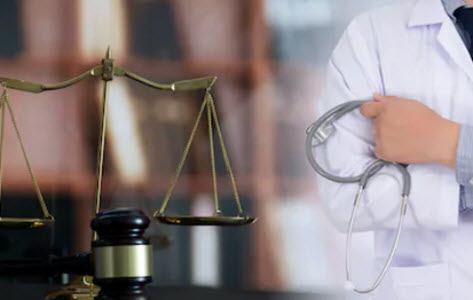Medical patients in Maryland rely on doctors to spot potential problems before they spiral out of control. Early diagnosis is a key aspect of modern medicine, as the best form of treatment almost always occurs as early as possible. The World Health Organization states that early diagnosis “improves cancer outcomes,” and many other illnesses can also be much easier to treat if addressed at the earliest stage. What happens if a doctor in Baltimore fails to provide you with the diagnosis you need? What happens if early treatment becomes impossible, and you suffer unnecessary health consequences as a result?
Defining a Missed Diagnosis

A missed diagnosis occurs when a doctor incorrectly assures a patient that they are healthy. A “missed diagnosis” is not the same as a “misdiagnosis,” although the two terms are often confused. While a misdiagnosis involves an incorrect diagnosis, a missed diagnosis is the complete absence of a diagnosis. An example of a missed diagnosis might involve a patient receiving a clean bill of health from a doctor despite showing obvious signs of ovarian cancer.
Delayed Diagnoses Can Also Be Harmful
Even if a doctor eventually provides a patient with an accurate diagnosis, this may also constitute medical malpractice. Certain delays may completely prevent a patient from getting the treatment they need. The Lancet states that early cancer diagnoses are associated with much higher survival rates.
Can a Missed Diagnosis Lead to a Medical Malpractice Lawsuit?
To determine whether your missed diagnosis could lead to a lawsuit, you might want to consult with a qualified medical malpractice attorney in Baltimore. During your initial consultation, your attorney can assess your situation and determine whether legal action is in your best interests.
There are a few factors to consider when determining whether or not to move forward with a medical malpractice lawsuit:
- Standard of Care: An important term in the world of medical malpractice, “standard of care” refers to the level of professionalism each doctor is expected to exhibit. The standard of care might alter depending on the unique situation. For example, a doctor might not be expected to detect a rare illness that mimics the symptoms of another disease. In contrast, they are expected to detect the presence of cancer when it is staring them right in the face.
- Negligence: A central concept in all injury lawsuits, negligence has a slightly different definition in medical malpractice cases. The standards are generally much lower for a doctor compared to a driver who causes an accident, for example. A doctor’s everyday mistakes may not lead to any real consequences. Generally, it is only reckless, gross negligence that can form the basis for medical malpractice lawsuits.
- Causation: A critical aspect of negligence is causation. To hold a doctor accountable for a missed diagnosis, the patient may need to show that there was a direct link between this failure and real, documentable injuries.
Find a Qualified Medical Malpractice Attorney in Baltimore
If you’ve been searching for a qualified, experienced Baltimore medical malpractice attorney, look no further than Furman Honick Law. We know how harmful missed diagnoses can be in Maryland, and we’re ready to help you explore your legal options. A medical malpractice lawsuit may be possible in this scenario, so call today and speak with a partner for a free case evaluation.
Sources:
who.int/activities/promoting-cancer-early-diagnosis